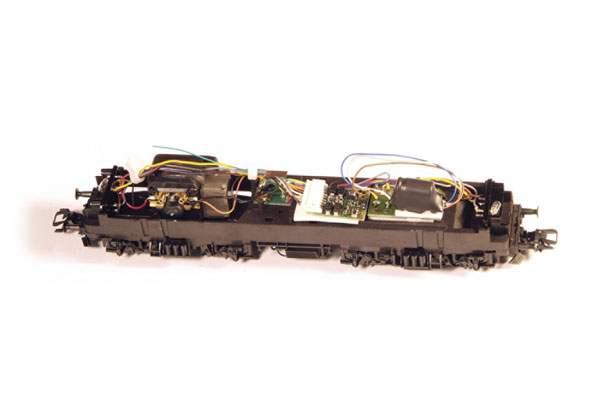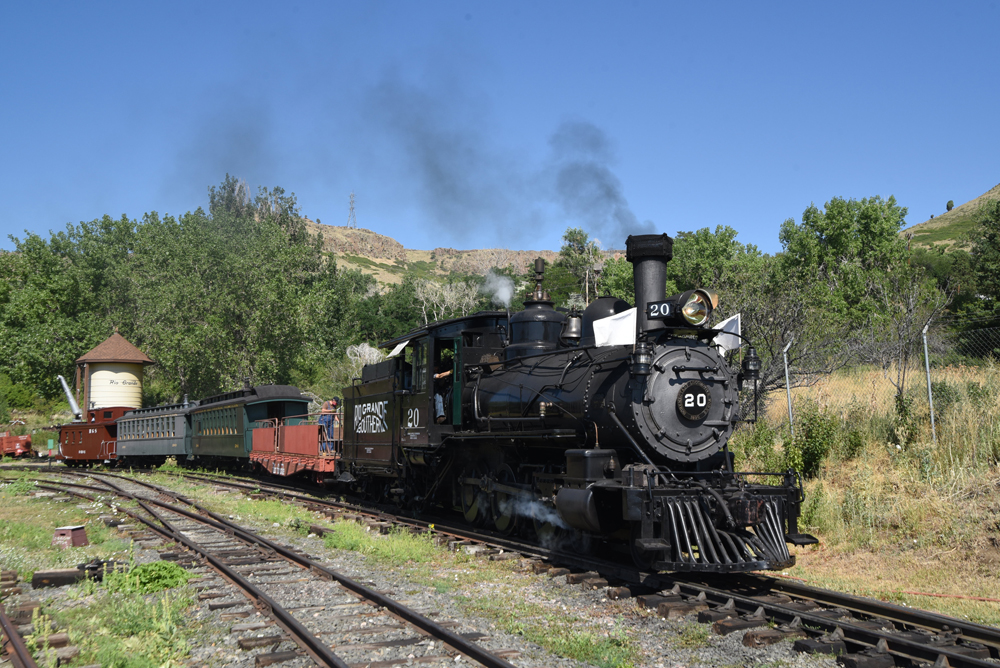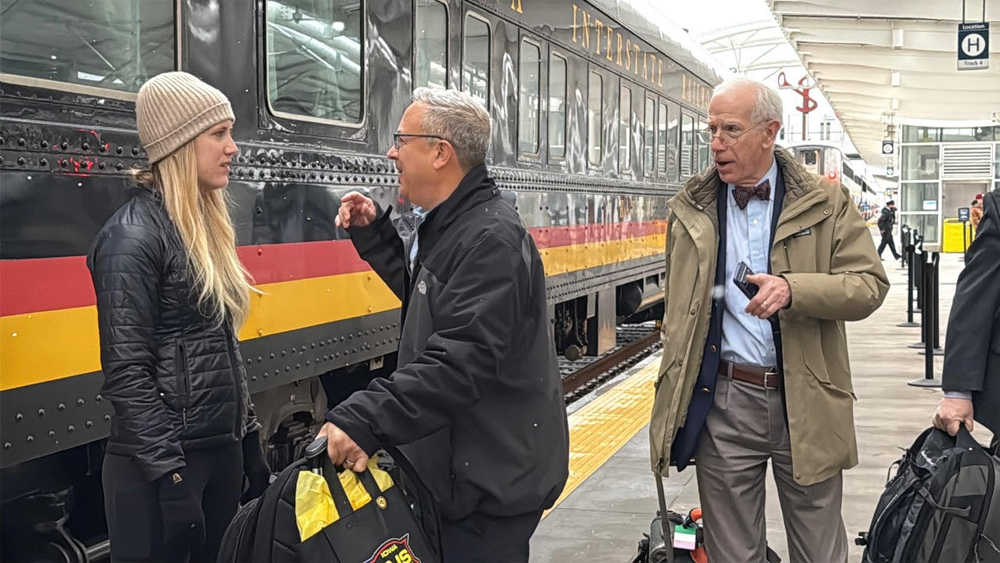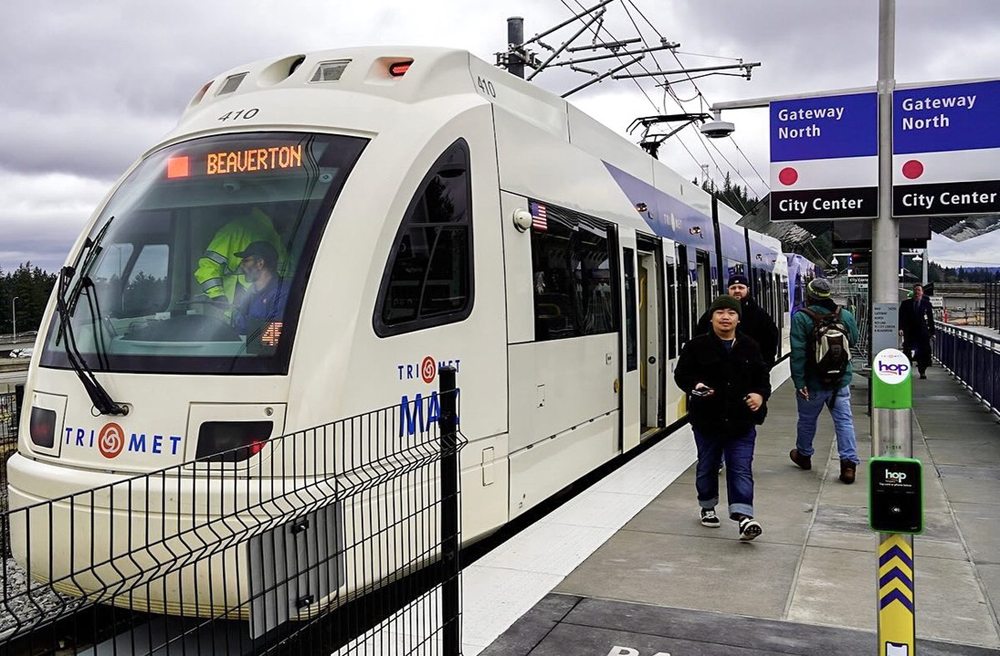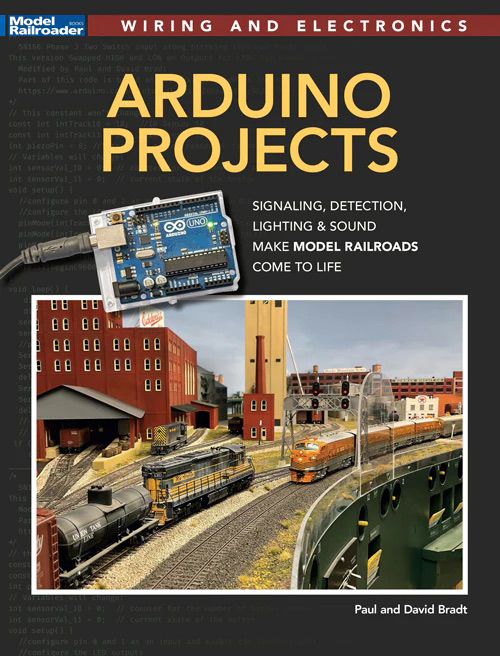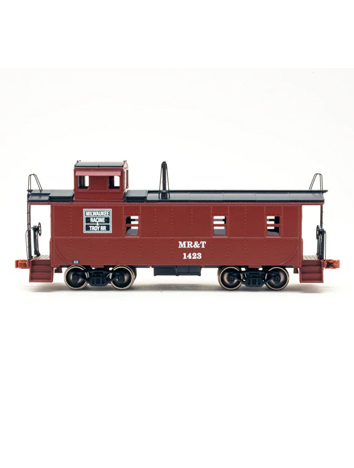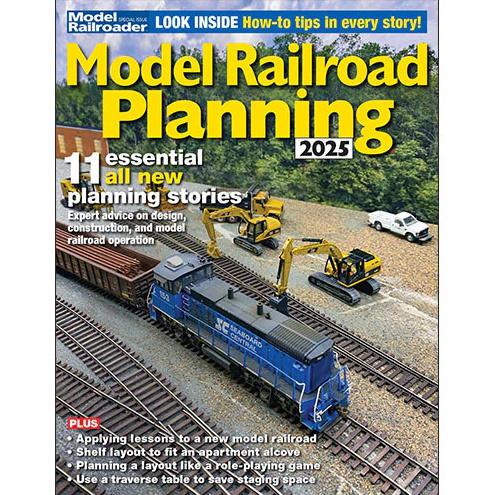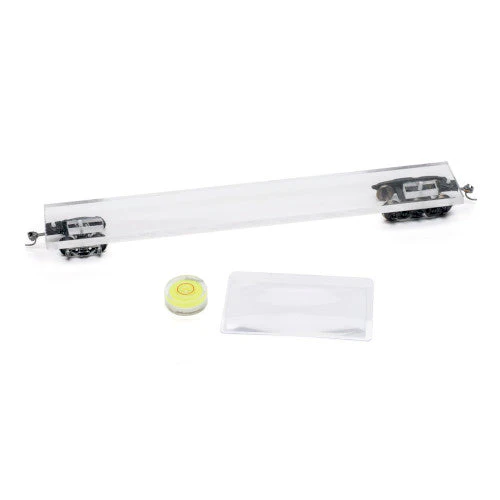The production versions of the decoder and power module for this system are now reaching retailers, and while it may not allow you to stop cleaning your track, it does offer some intriguing advantages.
If you’re electronically minded, it’s easy to imagine how a capacitor or a battery could be wired into a DCC-equipped locomotive to carry the locomotive over momentary contact interruptions. The trick, of course, is to maintain control over the locomotive during those times when power is interrupted.
Thanks to a proprietary technology, the decoders in the Lenz Gold Series can do just that (when equipped with an outboard power module). Without the module, the Gold Series decoders still offer an enormous array of features, including Rail COM bidirectional communications, a Serial User Standard Interface (SUSI) for outboard sound modules, and asymmetric DCC capabilities for automatic stopping.
We tested the decoder/module combination in a locomotive that we thought would give it a real workout, one with a three-pole motor, no flywheels, and pickup on only three axles. We equipped a mechanically and electrically identical locomotive with a Lenz decoder without USP. Both ran surprisingly well, but only the USP-equipped locomotive went through every switch, crossing, and dirty spot without stalling or slowing. And, it remained under control for the entire time. The USP technology made an impressive difference in how the locomotives performed.
The only drawback is that the user must solder three wires onto the circuit board to join the power module to the decoder. The wires are small, and the tiny soldering pads are very close together (roughly 1mm apart). Don’t try to solder the wires from the power module into the holes in the pads; the wires are too big. Instead, hold each one in place on top of the appropriate pad and touch it with the tip of a small soldering iron.
Even using this technique, it’s a difficult and delicate operation, and Lenz warns that the soldering must be done with a tool designed for soldering sensitive electronic equipment. (Use a soldering station, or a very small iron.) If you don’t have considerable experience with a soldering iron, you’ll want to have someone else take on this project.
Other than that and the need to find space for the power module, the installation is the same as for any other decoder. One decoder did stop working during our worst-case testing, but Lenz replaced it within days under the terms of the company’s 10-year decoder warranty.
This new decoder/power module combination is especially useful for switch engines, but its features will also be useful on road power. It’s too bad that the installation is challenging. A plug-in connection, or even more separation between the soldering pads, would take it from being a good option for experienced DCC users to being a great option for all users.
Note: Since this review was first published, Lenz has added another purchase option for the Gold decoder. The new Gold Super Pack includes the Gold decoder with the Power 1 presoldered on the decoder, eliminating the customer from having to do this job. The Gold Super Pack includes: Gold-JST decoder LY011 (wire) harness, LY012 (NMRA- plug) harness, and the Power 1, and has an MSRP of $94.50. – Ed.
Price: Gold JST-series decoder, $39.95; Power 1 storage module, $49.95
Manufacturer
Lenz Agency of North America
P.O. Box 143
Chelmsford, MA 01824
www.lenz.com
Description
Ready-to-install improved DCC decoder





